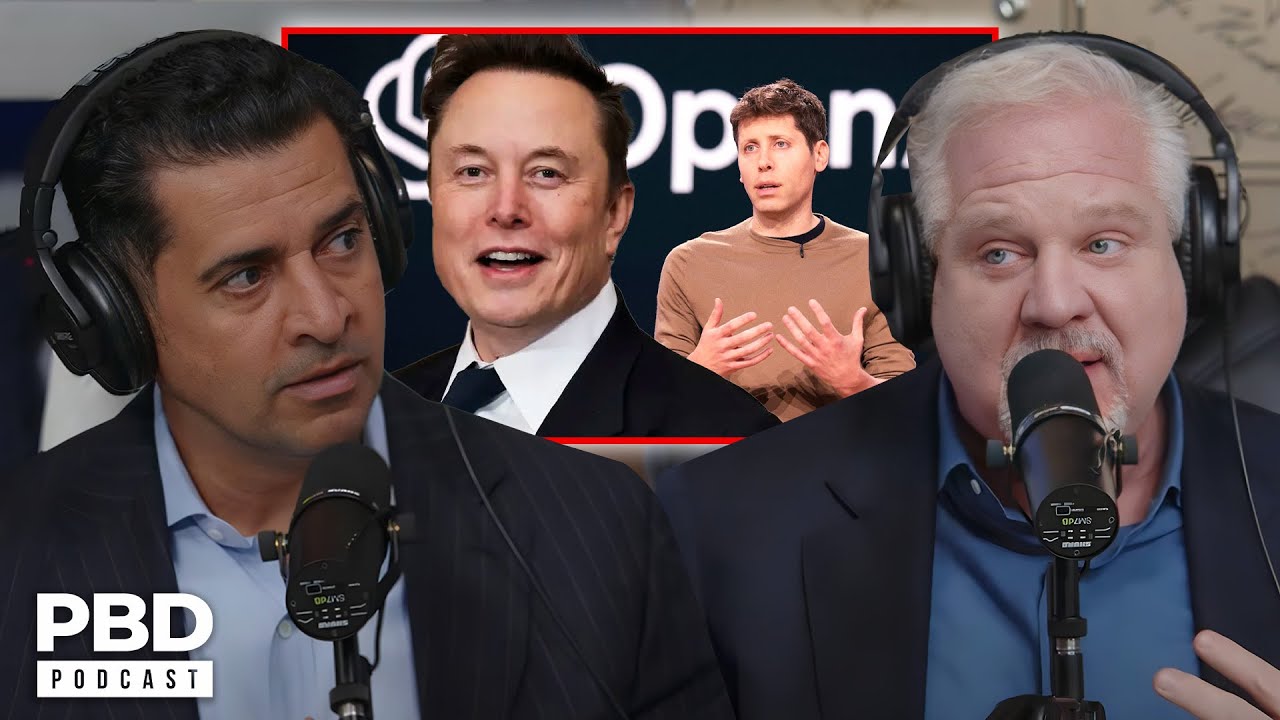In the video, Glenn Beck discusses the conflict between Elon Musk and Sam Altman over OpenAI, highlighting Musk’s concerns about Altman’s shift to a for-profit model and the potential dangers of advanced artificial intelligence. Beck emphasizes the importance of competition and open access to AI technology to prevent monopolistic control and ensure ethical development for the benefit of humanity.
In the video, Glenn Beck discusses the ongoing conflict between Elon Musk and Sam Altman regarding OpenAI, which began as a nonprofit organization aimed at promoting open access to artificial intelligence technology. Beck highlights Musk’s dissatisfaction with Altman’s shift towards a for-profit model, which he believes undermines the original mission of OpenAI. Musk’s concerns are rooted in the potential dangers of artificial general intelligence (AGI) and artificial superintelligence (ASI), which he fears could lead to a future where humanity is controlled by machines.
Musk’s frustration is evident as he leads a significant bid of $97.4 billion to gain control over OpenAI, challenging Altman’s leadership. Altman, in response, dismisses Musk’s offer and continues to pursue a $40 billion fundraising deal that values OpenAI at $300 billion. Beck points out that Musk’s bid complicates Altman’s fundraising efforts and raises questions about the ethical implications of AI ownership, especially with major stakeholders like Microsoft involved.
Beck emphasizes that Musk’s motivations extend beyond business rivalry; he genuinely believes in the need for open access to AI technology to prevent monopolistic control and potential transhumanism. He argues that Musk’s vision includes making humanity interplanetary as a safeguard against the risks posed by advanced AI. Beck suggests that Musk’s approach is driven by a desire to ensure that AI remains a tool for the collective benefit of humanity rather than a means for a select few to gain power.
The discussion also touches on the broader implications of energy production for AI development. Beck notes that the U.S. is lagging behind countries like China in nuclear energy production, which is essential for powering the massive data centers required for AI. He argues that serious investment in nuclear energy and infrastructure is crucial for the U.S. to maintain its leadership in AI technology and to ensure that ethical considerations are prioritized in its development.
Ultimately, Beck concludes that the competition between Musk and Altman is not just a personal feud but a critical battle over the future of AI and its impact on humanity. He advocates for a competitive landscape in AI development to prevent monopolistic control and to ensure that ethical considerations guide the technology’s evolution. Beck expresses a cautious optimism about Musk’s intentions, suggesting that while he may not fully trust Musk, he believes in the necessity of competition and open access to AI for the benefit of society.
